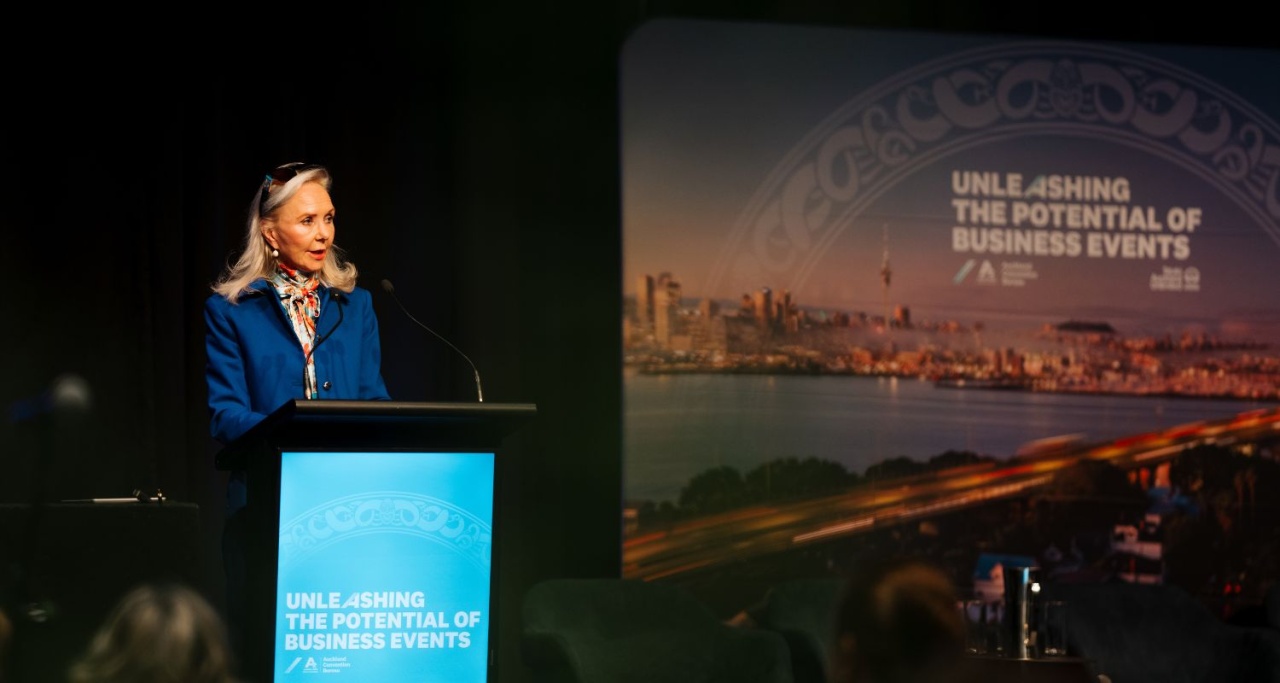Auckland faces intense competition in the business events sector both globally and domestically. To succeed, it must leverage its unique attributes, such as its strong cultural diversity and sector-specific expertise, to differentiate from other destinations.
“There's intense competition both globally but also nationally... We work really collaboratively together on the world stage. But the reality is there is increased competition domestically and we should acknowledge and be conscious of that whilst trying to endeavor to work together."
Sustainability remains a central challenge within the MICE sector, and there is a collective call to action for the industry to develop innovative solutions that enhance the sustainability of business events.
"Sustainability remains a key challenge and I think as a sector we can definitely address that."
Auckland's approach to the MICE sector is increasingly data-driven, with investments in smart technologies and research-led insights informing strategic decisions and enhancing customer experiences.
"Information is king... It's about making decisions based on those information... We've invested in some smart technology within the bureau."
The success of Auckland's MICE (Meetings, Incentives, Conferences, and Exhibitions) sector hinges on a collaborative approach, with stakeholders working together to provide a unified and compelling offering to the global market.
"If we as a centre are really strong, but our hotel partners are not, we won't be successful... So we all have our part to play in bringing these new business opportunities so we all thrive from them."
Positioning Auckland's business events to align with key economic sectors is a strategic move to strengthen the city's competitive global stance, driving both economic activity and knowledge exchange.
"Now Auckland's got a great sector profile, we want to try and accentuate that and try and build on that and business events is the perfect catalyst to do that."
A balanced business events portfolio that caters to a mix of domestic, Australian, and international markets across different event types is crucial for Auckland's year-round economic activity and sector growth.
"One of our key focus also is to aim for a balanced portfolio... We continue to build a strategic pipeline for the city but acknowledging that there are low hanging fruit and the short term wins that we can get."
Auckland is witnessing a robust recovery in the business events sector, with a strong pipeline of events, particularly for the year 2026, indicating a vibrant future for the industry.
"2026 is looking pretty positive and it's a really good sign that the biggest venue in the country is doing really well for that year. So there's a strong pipeline coming."
Auckland's rich indigenous culture is seen as a superpower and differentiating factor that can be leveraged to attract international business events and offer unique, culturally enriching experiences.
"We've got a really strong indigenous culture... that really is a superpower we officially class as a super diverse city... How do we leverage that, because... the rest of the world is looking at us with an understanding of culture that we possess that they don't necessarily have."
Exceptional customer service is highlighted as a competitive advantage for Auckland, with the potential to drive repeat business and positive word-of-mouth in the international business events market.
"How do we really champion our customer sort of centric behavior through our service, through our hospitality and try and just maybe keep that front of mind."
Ensuring efficient connectivity to and within Auckland is essential for the MICE sector's growth, with investments in key infrastructure such as Auckland Airport and City Rail Link enhancing the city's appeal to international.
“Auckland Airport. Multibillion dollar investment... it's important for not just Auckland's connectivity, but New Zealand's connectivity to the World."
Remarks by Ken Pereira, Prue Daly and Bjoern Spreitzer.
